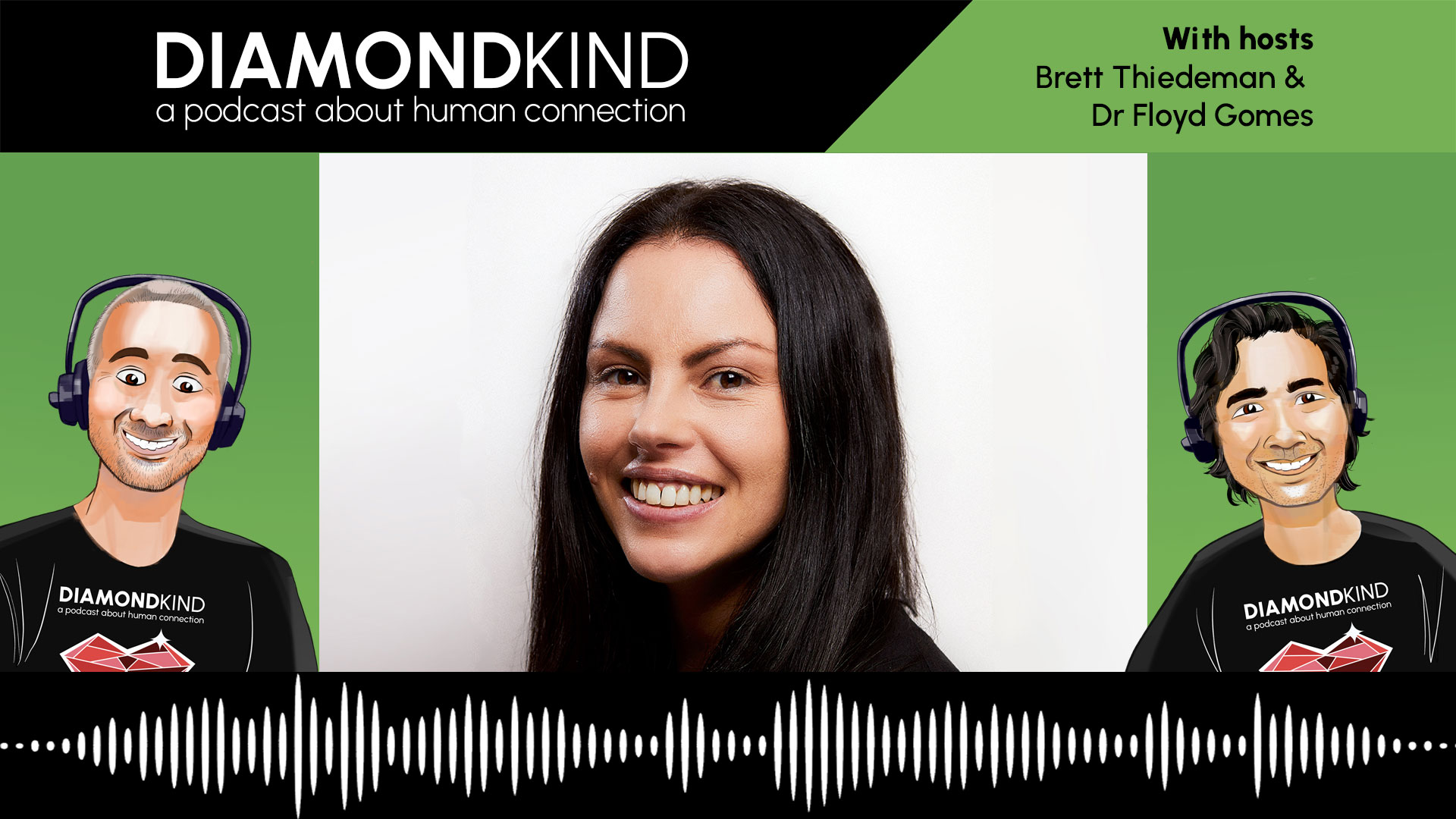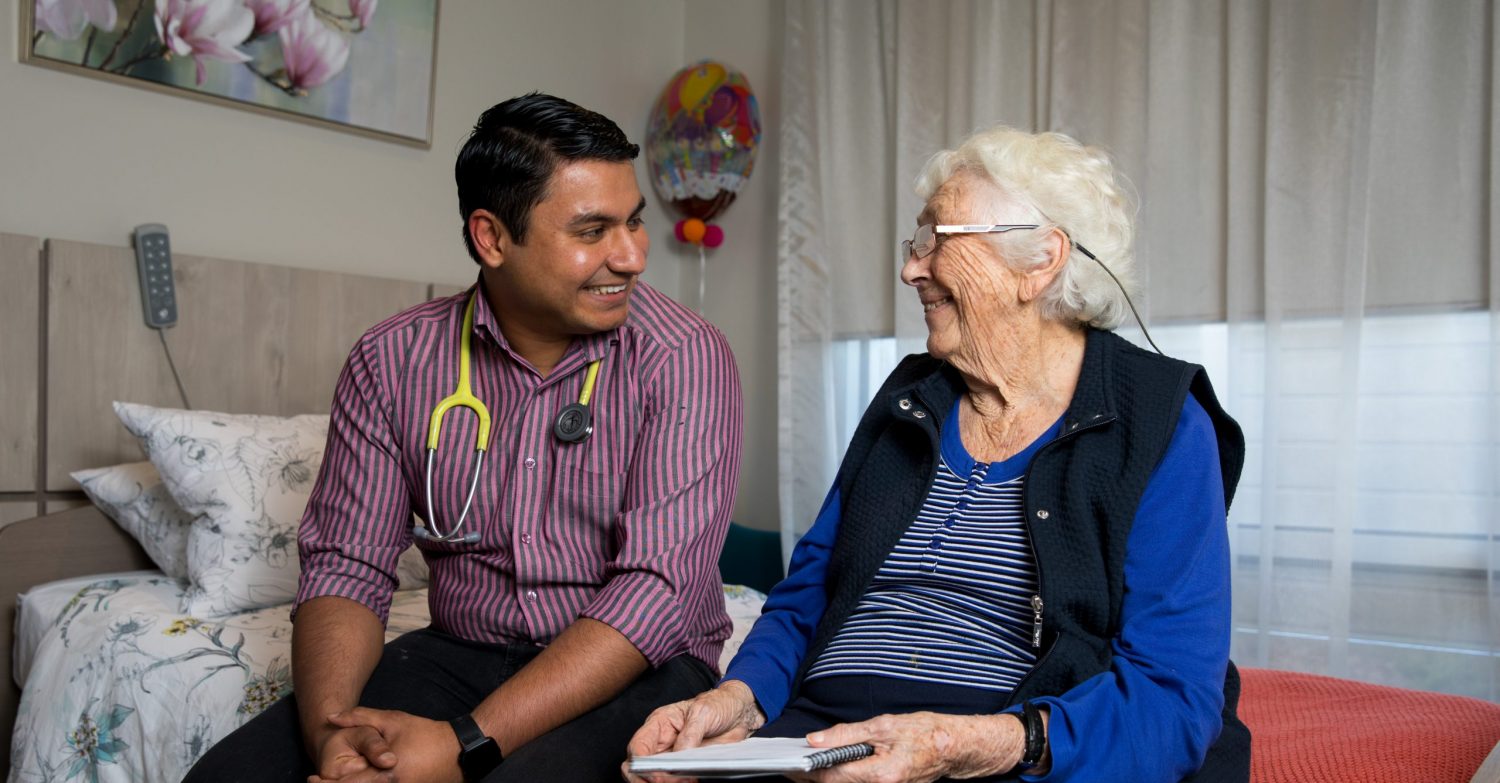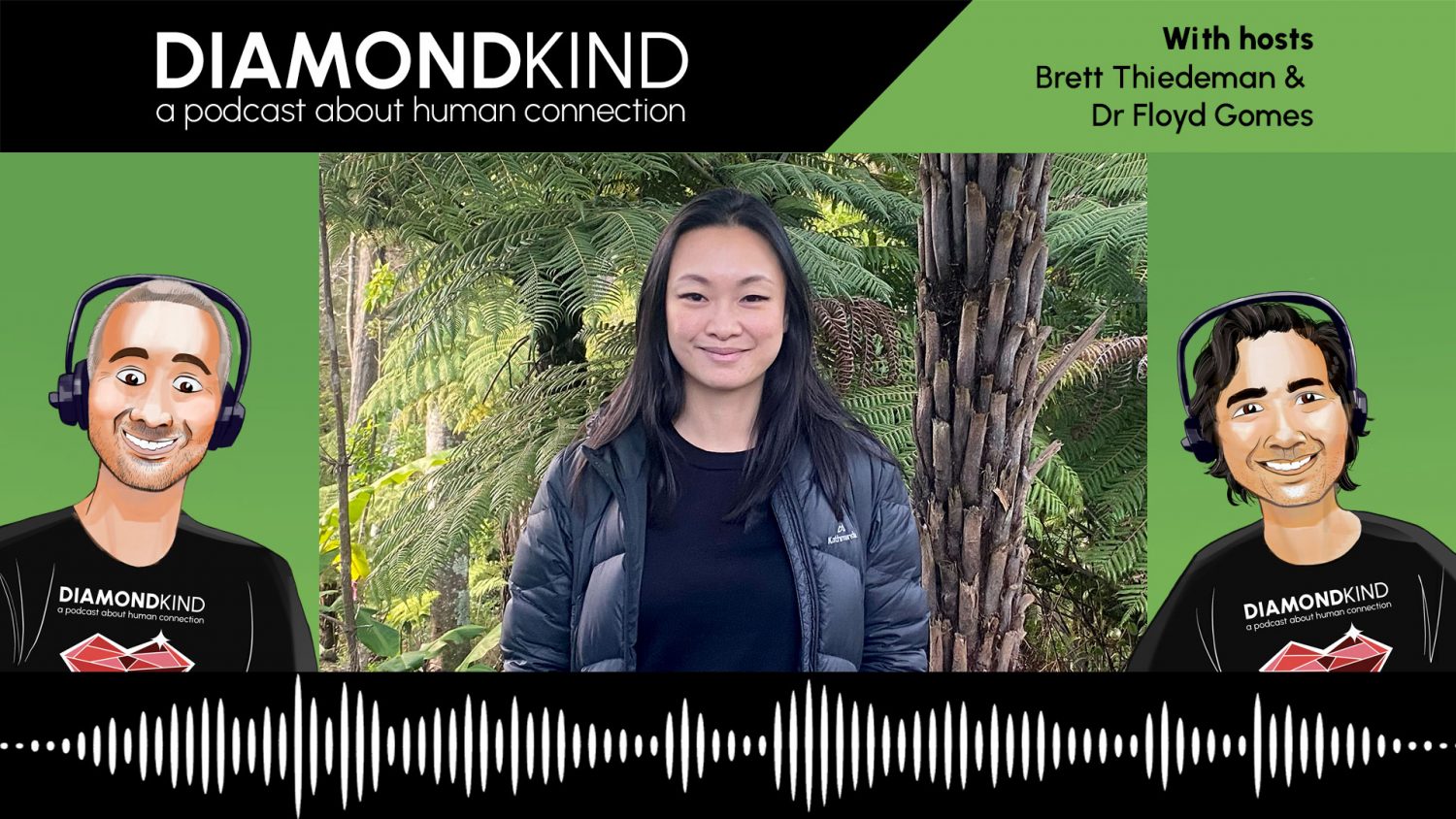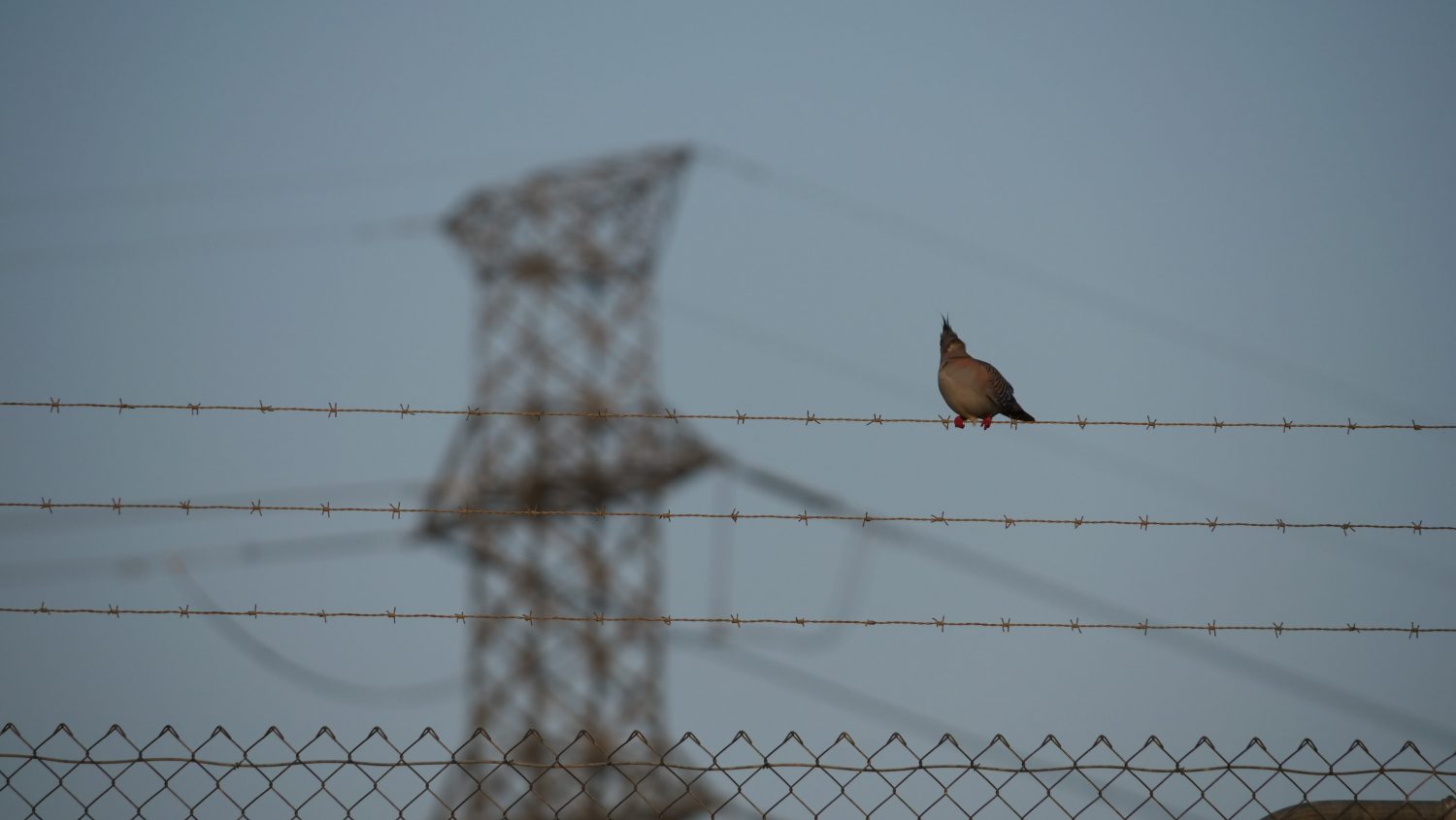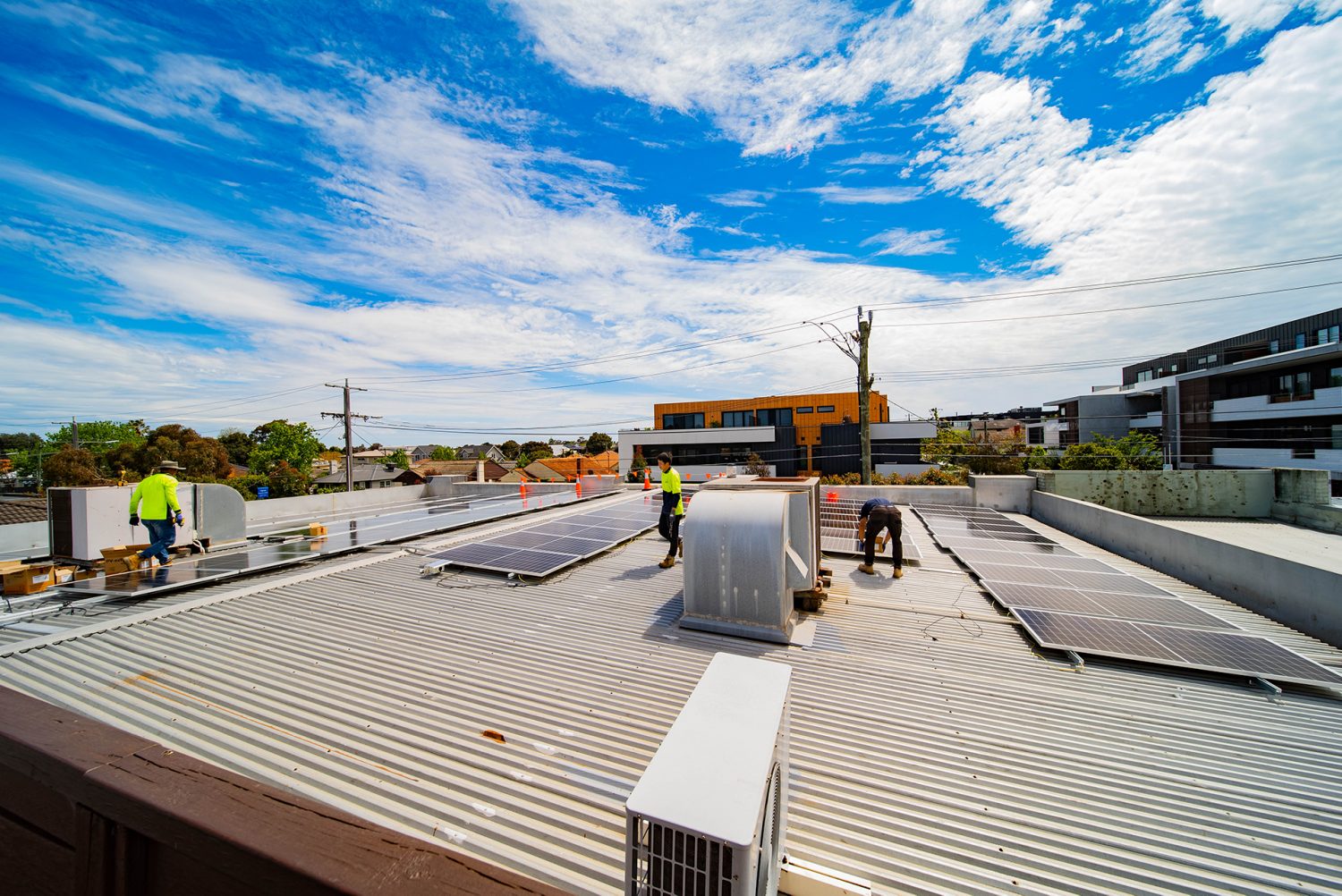In this episode of Diamond Kind, Bret speaks with our new dietician, Emma Keenan. Emma will be consulting at Hastings, Bangholme, Carrum & Hardware Lane. Emma talks to us about all things food. You are what you eat!
Brett: Welcome back to the Diamond Kind podcast. And today we’ve got a really exciting guest, who will actually be starting with Atticus health as a dietitian in the coming week. So we’re really excited to have Emma on the Diamond Kind podcast. Yeah, have a chat and ask her some questions, a lot of burning questions, which I want to know myself. But I’m sure a lot of other people would want to know, as well. So Emma, hello, good. It’s an afternoon or morning. It’s afternoon now, isn’t it? Good afternoon.
Emma: Hi. Thank you for having me.
Brett: Thanks for joining us. Thanks for coming in today and joining Nathan and me for the podcast.
Emma: Yeah, it’s very interesting. It should be fun.
Brett: Yeah. So Emma, just tell us a little bit about what you’ve been doing, and a little bit about yourself.
Emma: So I graduated as a dietitian at the end of last year. And post that I started working in COVID clinics. So I was doing COVID swabbing and vaccinations during the peak of the wave last year over the summer. Yeah, while looking for a role as a dietitian to try and find you know, meaningful positions. So here I am now at Atticus health and pretty exciting to be joining the team here.
Brett: And why did you choose that? Why did you choose, what made you choose that, you know, that you wanted to be a dietitian?
Emma: I think food is such an important aspect of our lives. It’s probably one of the longest relationships we’ll ever have from birth, right through to the end of life. Our relationship with food is with us every day, several times a day. You know, it’s important, not only from a health perspective, but you know, from cultural lag, celebrations religion, it touches every aspect of our lives in many different ways.
Brett: That’s really cool. And I guess for the listeners, I do want to tell the listeners, you know, what a dietitian does.
Emma: So a dietitian is a health professional that has expertise in food and nutrition and the impact that has on our bodies and our health. So we work with individuals, and people in the community groups to prevent and treat disease and promote health.
Brett: Yeah, okay. And in, I guess, a consultation, you know, what would you know, what could a patient expect, when they came into a clinic, what would the consultation look like?
Emma: Um, so I think for that first initial consultation, when you want to get to know your client or patient you want to get a really comprehensive view of what’s going on in their lives from a medical perspective. Their past history, what’s going on, you know, doesn’t have any nutrition impact systems. We love to talk about bowel motions. You know, any nausea, bloating, gas, all of those sorts of things that could could be impacted by food, health, any medications, we want to know social history. Who’s buying food? Who’s cooking food? Are you eating out? What you’re eating? What sort of foods you eat every day. It’s a pretty comprehensive kind of view. We want to find your health goal, or goals. What are you working towards? How can we support you to best improve those health outcomes?
Brett: Yeah, awesome. I guess it’s a personal question, Emma. Which again, I think a lot of people would like to know I would like to know. What what do what do dieticians eat? What would you eat?
Emma: Oh, everything? Yeah, I think dietitians are made personally, but probably most of us we probably eat most foods or all foods would definitely probably veer more towards eating a lot of fruit and vegetables and whole grains and knowing how good they are for us. But you know, in saying that I eat chocolate and takeaway and burgers and you know, everything.
Brett: Well, that’s good to know, especially after the weekend when I take my son to McDonald’s and get him his chicken nuggets. And I normally get some chicken nuggets at the same time as well, and maybe a Big Mac. But yeah, I guess, just moving along. The other question that I was really interested in is how important is having breakfast in the morning? Is it something that’s really important? Do you think?
Emma: Um, well, I suppose the meaning of breakfast is actually breaking your fast.
Brett: Yeah, that’s true.
Emma: So whether that means that you’re eating first thing in the morning or later in the day? I don’t know whether there’s that big of a difference. At what is your timing of eating meals as long as you’re getting in?
Brett: Okay, all of like, the nutrients your body requires over? Over a day. Yeah. So the thing about, you know, like getting up in the morning and making sure that you have your breakfast. You know, as you wake up. You don’t feel like that you have to do that. As long as you’re getting your nutrients at some point of the day.
Emma: Yeah, I think it depends on who you are as a person. You know, if you’ve got kids and your mornings a bit crazy, and it’s all over the place, and you know, you get them ready, and they
eat and then you run out the door and you grab a banana or something or you get food an hour or so later. I don’t think that’s gonna, you know, have a huge impact on your intake across the day.
Brett: I guess, probably the extension of that is just around a lot of people these days, including myself, do from time to time do intermittent fasting. So what what are your, what are your thoughts on the intermittent fasting?
Emma: Um, I think that I haven’t actually looked at any research recently, but I know that there’s people will have great responses to it. Like, if people are doing it from a weight loss perspective, then if you’re limiting the amount of time that you have to eat, you probably going to be eating less energy over time.
Brett: Okay. Yeah. And what about you know, like a vegetarian diet? Do you think this is the best way to eat?
Emma: Um, I think if that’s your part of your belief system or your religion, then you know, you can have a vegetarian diet that hits all of the you know, nutrients, and you’re getting all of your protein and energy and everything from what you eat. I don’t think that black and white, that you would say that everyone has to be a vegetarian. But yeah, you know, if you have a diet full of vegetables and whole grains, like a vegetarian diet, yeah it’s great.
Brett: Yeah. In terms of supplements, are there any particular supplements that you would recommend? And I was just thinking, yeah, maybe if you like, what would your favorite five be? Is there five that you could sort of talk to everyone about?
Emma: Um, I’d say from a dietetic perspective, we would definitely work in a food first manner. So I wouldn’t be recommending any supplements. Necessarily, depending on what’s going on in someone’s diet. And that would probably be something that you would engage with the GP to get some bloods done to see you know, if there is anything missing I think. Supplements can just be very expensive to buy. Because most of the time the ones that are marketed are water soluble. So you probably weighing them out. You miss out on a lot of the benefits of eating whole food if you’re just having one vitamin, and a tablet, you know, you misses out on the fiber and the phytochemicals and the bioactive compounds. A range of health benefits.
Brett: Okay. So as you said, you know, you focus more on the food first
Emma: Always yeah.
Brett: And, you know, in that food, I guess, what would you say is the biggest problem? You know, diets like, Would it be sugar or salt or fats?
Emma: Um, I think, rather than looking at what we’re having too much of, you would, we would look at what we’re not having enough of. So the latest national health survey through the abs, which people filled out during lockdown online, the results have come in that less than one in 10 or so, 8.7% of Australians meet their daily recommended intake of fruit and vegetables.
Brett: Only 8.7 made it? Yeah, yeah. Right. Okay, of the population?
Emma: Yeah. So I think, you know, instead of saying that sugar, salt or fat is the problem. The problem is probably that we’re not eating enough fruit and veg.
Brett: Okay. That’s, that’s a good answer. What about water? You know, like, I’ve always heard that,you know, people talk about, drink two liters or eight glasses of water a day. What
are your thoughts on that?
Emma: Yeah, I think that you know, 8 glasses of water is probably a generalised recommendation, but it’s probably not far off what most people should try and consume. You know, water is pretty important to for our bodies, keep us hydrated. Keep our kidneys happy.
Brett: Yeah, nice. What about, I’ve always wondered this. I see in the shops, you know, you’ll see organic food is good, you know, which is labeled organic. What is it? Is it healthier?
Emma: Um, I don’t believe it’s has any greater nutritional benefits? It’s probably the benefits are more from a farming perspective. Or an environmental perspective.
Brett: Okay. Yeah.
Emma: With the farming practices.
Brett: Yeah, that makes sense. Another one. This is a question from one of the staff actually, though, I spoke to them about and they told me that, you know, they wanted to know this. Should I avoid fruit because it has too much sugar.
Emma: That will be big no. I suppose the fruit in sugar is a lot different. If you compare it to say, I don’t know, eating a lollipop or something, right? The way that your body is going to digest that
is going to be way different. So if you have like a lollipop, it’s going to be instantly digested straight into your bloodstream. Whereas if you have a piece of fruit, it’s got fiber and everything else connected. It’s got all your vitamins and minerals, it’s going to slowly digest and it’s not going to like spike your blood sugar.
Brett: Yeah, okay. Yeah. So it’s slow, slow release.
Emma: And with heaps of health benefits as well.
Brett: Yeah. Okay. What about calcium? Do we have to drink milk to get calcium?
Emma: No, there’s plenty of other foods that provide calcium. Like dairy products are a great source because they’re more bioavailable, so they’re going to be absorbed better by a body but in saying that there’s lots of other foods like leafy greens, tofu. Different nuts and what not, that have calcium as well.
Brett: So yeah, and I know a lot of people now are drinking other milks.
Emma: So with drinking those milks, you just want to make sure that they’ve been fortified with calcium as well. So just something to check on the side. Those products, it’s a good one, just to make sure that you know, if you are drinking this other non dairy milk that you are getting the calcium that your body requires from
that product.
Brett: Okay. All right. It’s a good one, we’ll definitely check that. I guess in these times, especially at the moment with the fruit and vegetables, a little bit of a shortage and the prices seem to be going up. So a question I was going to ask was in regards to vegetables? Are eating fresh vegetables better than eating frozen vegetables?
Emma: From a nutrition perspective? Yeah, I know, that there’s no difference in like the nutrient values. It would just be like a texture perspective, I suppose. You know, and generally, the vegetables that are frozen are ones that hold up quite well to be frozen. So and I know that at the moment, the cost of living is a huge playing a huge role in people’s lives. I have a freezer full of frozen vegetables. And you know if your time poor, you don’t have to think about it. You can just chuck them in a pan and it’s all good. But yeah, you’re probably looking at maybe half the price. We need to add vegetables to our diet. So if you don’t have to think about buying them, storing them, not wasting them chopping them up.
Brett: Yeah, yeah.
Emma: Then they’re great.
Brett: Yeah, that’s, that’s a really good tip. And I guess with the as you mentioned before, with only 8.7% of people eating enough fruit and vegetables, this is probably a good idea. Saves a bit of time, for the convenience. And it’s good to know that we’re still getting the same nutrition.
Emma: Hmm. Yeah, I think people would find that maybe they would add more to their, their, you know, meals if they know that they’re just sitting there in the freezer, and they can add them at
any time. And it’s easy.
Brett: Really good tip. Thank you for that. We had a question from Nathan, as well, will eating soy give men Manboobs?
Emma: Oh, I think the evidence is out on this. I would probably have to go and reference something but I believe that the correct answer is no.
Brett: No. Okay. That is good to know. For myself, as well. So yeah, thanks for that. Alright, we’ll go to the last question. So thanks, Emma. Is there anything else that you wanted to add? Before we
go to the to the last question, which we sort of ask everyone as part of the Diamond Kind podcast?
Emma: Ah, no, I don’t think there’s anything specific that I’d like to add. I’m looking forward to meeting all of my future patients through Atticus Health. And to go on the nutrition journey with them and, you know, to help improve their daily diet and work on whatever goals they have for their health outcomes. It’s gonna be exciting.
Brett: Yeah, that’s awesome. We’re really excited to have you as well. And so as I said, Yeah, you’ll be going out into the clinics from the 15th of August starting in Hastings, I think is your first stop. We’re really excited to have you on board. And so I’ll ask you the last question then, which is what we ask all our guests on the Diamond Kind podcast. So just to give us a specific time where you were under a lot of pressure in your life and how you sort of move through that time with kindness.
Emma: Hard question. I think probably a lot of people really will relate to how hard living in Melbourne was for our lockdowns during COVID. I ended up living by myself during that time I was finishing my Masters online and had some other stuff going on out of state that I couldn’t get to. So yeah, a lot of pressure in my life. One of my friends and I, we had like a bubble. She was also living by herself. So we’d share food together go to each other’s house on a rotating basis to share a meal and yeah, look after each other in that kind of social aspect. So yeah, her birthday was in lockdown, which is a big, you know, day for her. So yeah, we went to a restaurant were we were actually meant to go to, and got food prepared for her and surprised her with that for her birthday. So yeah, I suppose that was kind of unknown, a little bit of kindness during all the pressure. Trying to navigate COVID lockdowns in Melbourne. Interesting experience for us all.
Brett: Yeah, yeah. Yeah, that’s a great example. Emma. And how are you finding it, you know, being sort of out of lockdown. You know, getting back into work?
Emma: Fabulous. Yeah, go out everywhere and meet people and Yeah, eat food and go to shows and you know, enjoy the freedom, can enjoy our lives and the social aspect and having people in them.
Brett: Yeah, awesome. Well, thanks again for your time today. And to everyone out there. As I said, Emma will start with Atticus health as a dietitian on the 15th of August. So yeah, if you’re
interested in seeing a dietitian, please book or arrange an appointment with the clinic. So thank you for listening, and we look forward to the next episode.
